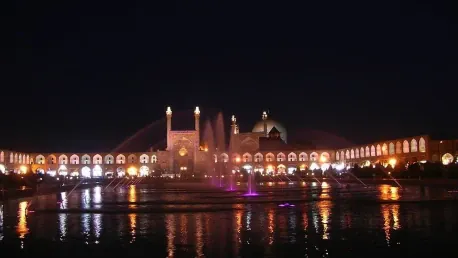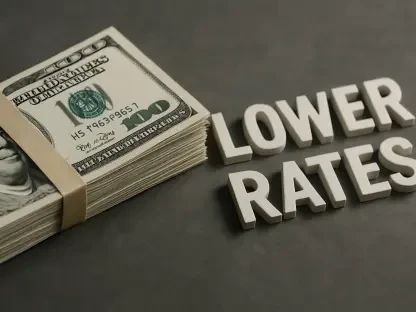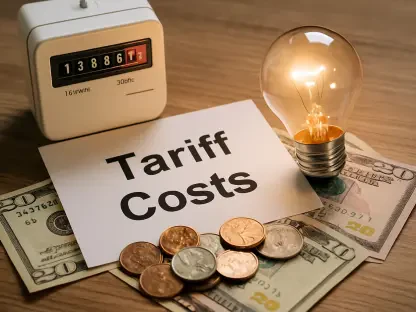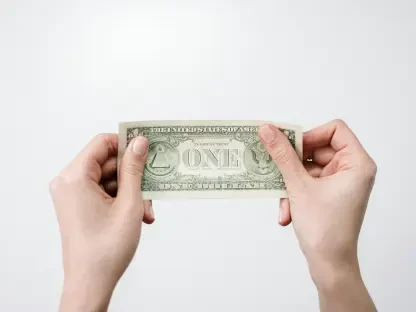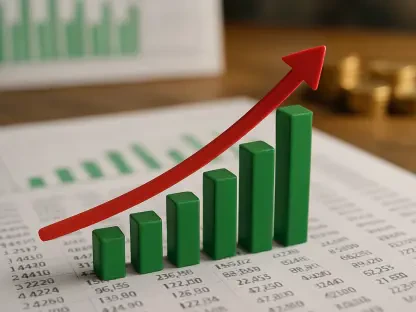The Iranian middle class is currently grappling with severe economic distress, a direct consequence of the country’s ongoing economic crisis. Central to this predicament is the significant devaluation of the Iranian rial and the compounded effects of longstanding international sanctions, which have exacerbated everyday hardships for many. Public attention has shifted increasingly towards the escalating cost of living, which in turn has led to a decline in political engagement—a development with far-reaching implications.
The Impact of Sanctions on the Middle Class
Devaluation and Inflation
Within the past year, the Iranian rial has lost more than 50% of its value, plunging from 600,000 to over 1,000,000 against the US dollar. This sharp devaluation has led to soaring inflation rates, making imported goods prohibitively expensive and hitting the country’s lower and middle-income demographics the hardest. The widespread economic uncertainty has left many Iranians struggling to make ends meet amid increasing costs of everyday necessities.
Economist Mohammad Reza Farzanegan from the University of Marburg has noted how this economic instability has turned public focus primarily towards survival rather than political engagement. Rather than mobilizing for societal changes, many within the middle class are preoccupied with the more immediate concerns of daily expenditure. This shift in priorities fundamentally contradicts the objectives of international political pressure, expecting to rally citizens against the regime.
Eroding Stability and Political Engagement
The economic strain caused by currency devaluation and inflation has led to unprecedented shifts within Iranian society. Farzanegan’s observations highlight how the tangible economic hardships faced by households have diminished political activities and engagements. This shift, from active participation in governance issues to an ingrained concern over financial survival, suggests a deeper erosion of societal stability and political involvement.
Such economic distress is not merely a sociopolitical issue but touches the very fabric of daily life for Iranians. The dwindling ability to afford even basic amenities has led citizens to focus more on survival tactics than political advocacy. This scenario emerges as an ironic outcome of international sanctions aimed at undermining Iran’s political structures but inadvertently affecting the public’s ability to engage politically.
The Middle Class and State Dependence
Study on Sanctions
Farzanegan, alongside Nader Habibi from Brandeis University, conducted an extensive study that demonstrates the severe impact of sanctions, particularly those enacted since 2012, on the Iranian middle class. Their findings suggest that punitive economic measures targeting Iran’s nuclear ambitions have inadvertently stunted middle-class growth. The study estimates that if these sanctions had not been in place, the middle class would be approximately 11 percentage points larger than it currently is.
The longstanding sanctions have hampered economic opportunities and restricted personal growth within this critical demographic. Instead of fostering a more prosperous society that might leverage political influence against the regime, the sanctions have halted the expansion of the very segment that could pose the most substantial opposition. Consequently, this has presented a significant challenge to the objectives of international political pressure.
Strengthening State Entities
The adverse effects of sanctions on the private sector have, paradoxically, resulted in the strengthening of state-affiliated entities such as the Revolutionary Guards (IRGC). These groups have managed to strategically exploit the economic vacuum created by sanctions, fortifying their market positions through alternative trade networks. While private enterprises struggle to survive under heavy sanctions, IRGC-associated entities have leveraged government support to consolidate their economic power.
This consolidation of state power relative to civilian economic independence reflects a paradoxical outcome. Instead of weakening the regime, sanctions have bolstered entities entwined with the state’s core structure, inadvertently increasing their influence and control over the Iranian economy. This dynamic has made the middle class more dependent on state-affiliated institutions, further entrenching the regime’s grip on economic power.
Gender Disparities and Economic Hardship
Challenges for Women
Women in Iran face particularly severe challenges under the current economic conditions. According to research by Hadi Salehi Esfahani from the University of Illinois, compounded difficulties stem from low economic growth, persistent recession, cultural biases, and gender roles that traditionally prioritize men as breadwinners. This multifaceted stratum of challenges has created a vastly unequal playing field for women seeking employment.
Stricter hiring criteria, limited career advancement opportunities, and lower pay for equivalent work further exacerbate these issues. Structural disadvantages and workplace discrimination add to the hurdles faced by women, making it markedly harder for them to secure or retain employment. The result is a segment of the population bearing a disproportionate share of the economic distress inflicted by both local policies and international sanctions.
Economic and Cultural Discrimination
The compounded economic and cultural discrimination faced by women has significant implications. Traditional gender roles, combined with systemic workplace discrimination, have resulted in lower pay and fewer vocational opportunities for women compared to their male counterparts. This places additional pressure on women, who must navigate both economic challenges and ingrained cultural biases.
Amidst the economic crisis, these adverse conditions have worsened, highlighting the multifaceted impacts of sanctions and devaluation on the most vulnerable groups. The efforts women undertake to secure or maintain gainful employment are frequently thwarted by these intersecting disadvantages, making their struggle emblematic of wider societal inequalities aggravated by economic pressures. This layer of hardship illustrates a deeply rooted issue that sanctions alone cannot rectify.
Uncertain Future and International Sanctions
Renewed Sanctions and Government Response
The reinstatement of the National Security Presidential Memorandum by former US President Donald Trump in February was aimed at applying “maximum pressure” on Tehran. These renewed sanctions specifically target Iran’s critical oil exports, intending to cripple the state’s primary revenue source and intensify economic constraints. With critical oil revenue under threat, Iran faces a tightening of economic conditions already strained by previous sanctions.
In response, Tehran has attempted to mitigate these pressures by strategizing to reduce government expenditure, including cutting energy subsidies. However, Iranian business journalist Mahtab Gholizadeh observes that such measures are insufficient for stabilizing an economy already reeling under intense sanctions. Optimistic targets set in the government’s budget, such as achieving 2 million barrels of daily oil exports, seem increasingly unrealistic under the tightened sanctions regime.
Budget Deficits and Inflation
As the Iranian government grapples with the severe economic conditions, the forecasted budget deficit looms large. The elimination of energy subsidies and unrealistic budget targets are likely to trigger further inflationary waves, aggravating the ongoing economic crisis. The looming budget deficit presents a daunting challenge, leaving Tehran in a precarious position as it navigates the compounded pressures of sanctions and economic mismanagement.
These factors may result in severe inflation, spiraling the cost of living further and intensifying hardships for the country’s already burdened middle class. As the economic situation deteriorates, systemic instability is likely to deepen, underscoring the inadequacy of governmental measures in addressing the profound strains imposed by international sanctions.
Socio-Political Consequences
Public Resentment and Dissent
Increasing economic pressures could well amplify public resentment against the political system. Notable instances of mass protests have already taken place, such as those in 2022 following the death in police custody of Jina Mahsa Amini, and in 2019 responding to rising energy prices. These protests illustrate significant public dissent, although they were met with severe regime repression, underscoring the government’s tough stance toward civil unrest.
Public dissatisfaction is growing as economic conditions continue to deteriorate. Such dissent highlights the stark discontent among Iranians, frustrated by the crushing impact of sanctions and governmental inefficiency. As the economic crisis deepens, the regime’s tight control over civil dissent becomes increasingly evident, portraying a complex interplay between state power and public grievances.
Implications for Political Mobilization
The Iranian middle class is currently grappling with severe economic distress, a direct consequence of the country’s ongoing economic crisis. The pivotal factor in this predicament is the significant devaluation of the Iranian rial. This economic downfall is further complicated by longstanding international sanctions, which have intensified the daily hardships faced by many Iranians. The escalating cost of living has taken center stage, capturing public attention more than ever. This shift in focus towards economic survival has led to a noticeable decline in political engagement among the populace, signaling potential long-term ramifications. As priorities have shifted from political involvement to addressing immediate financial concerns, the political landscape has been affected in ways that could reshape the country’s future. The interplay between economic strain and political disinterest is creating an environment where crucial societal and governmental discussions may be neglected, posing risks to the nation’s overall stability and progress.
